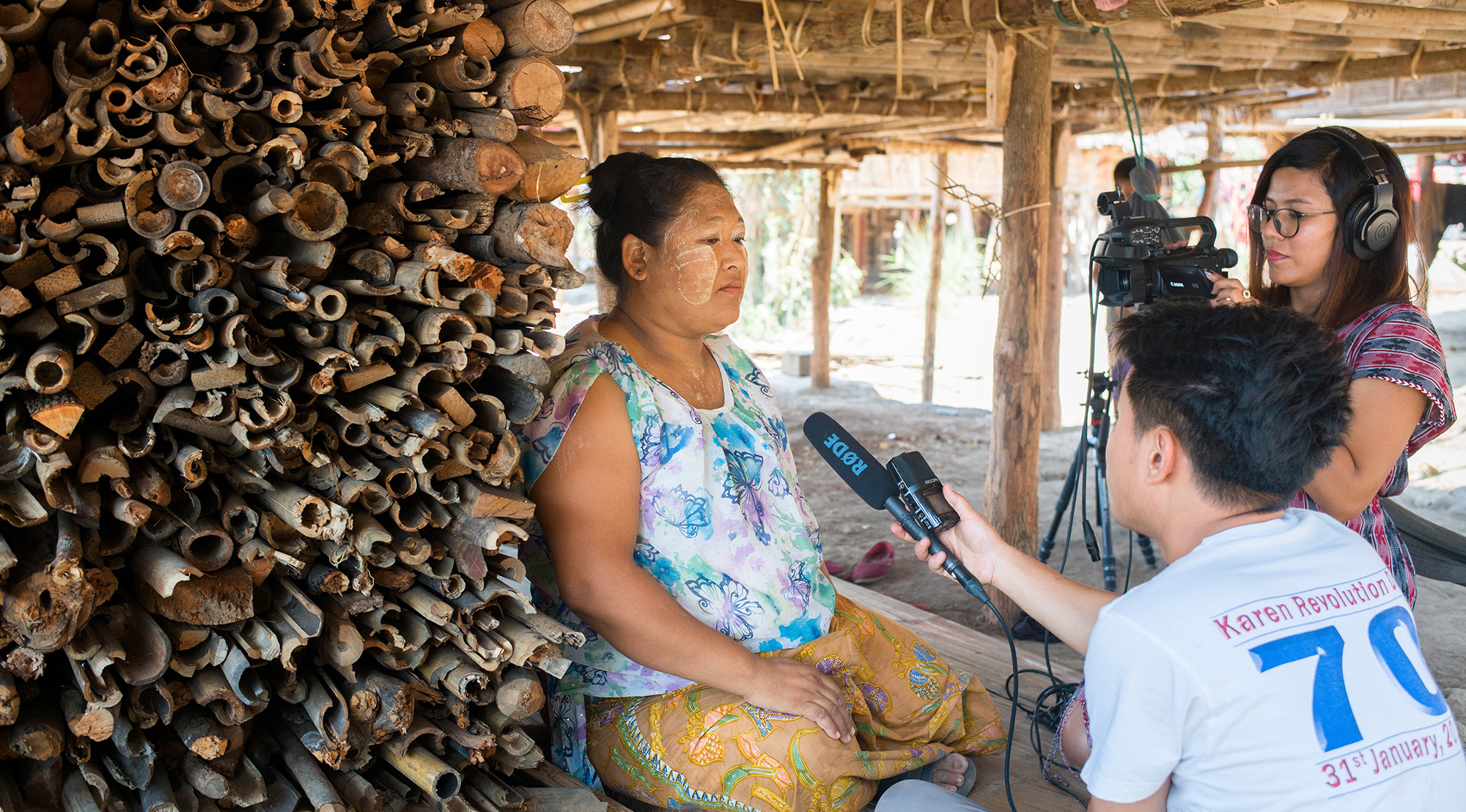Fondation Hirondelle started working in Myanmar in 2016 to support a professional media sector, which was giving a voice to the population in a difficult, historic context of democratic transition. In 2017, Fondation Hirondelle launched a program on human rights with its local partner Frontier Myanmar, supported by the Dutch Embassy in Myanmar. Frontier Myanmar is an independent information magazine with a website in English and Burmese.
The project aims to make up for large gaps in content and access to information on human rights and related issues through practical training for journalists and ethnic media, and the production of a weekly podcast on human rights. This podcast, Doh Athan (Our Voice), has been broadcast since October 2017. It explores human rights-related issues through reports and in-depth interviews with the public, leading human rights activists, academics, campaigners and government authorities, with a diverse range of voices and sources throughout the country. Doh Athan gives a voice to moderate opinions and deals with information rarely covered in the national dialogue, especially the stories and perspectives of women and marginalized members of different communities, to combat negative stereotypes. The audio produced for the podcast is complemented by videos distributed on social media.
To support the podcast’s production and distribution, Fondation Hirondelle and Frontier Myanmar have developed a network of 6 ethnic and local media partners across the country. These media partners are given journalism training and production equipment, and they participate in the production and weekly broadcast of Doh Athan. The stories and voices of the whole country are therefore heard in this national audio magazine. The media partners help to distribute the podcast to their listeners and on their social media pages.
Testimonies of two journalists for the media partners who received training in Chin State:
Salai Holy (Chinland Post): “I found the exchange of ideas between participants really useful. It enabled us to learn from one another about the main problems in other regions of Chin State, and the types of stories our audiences are interested in. I think the training helped me to develop new ideas about topics focusing on human rights.”
Van Lian Mang (Chinland Herald): “I enjoyed learning to identify ‘fake news’. ‘Fake news’ is a big problem in Myanmar and advice such as carefully examining sources and reflecting on which websites to trust, was really useful. I think it will help me with my reports.”


